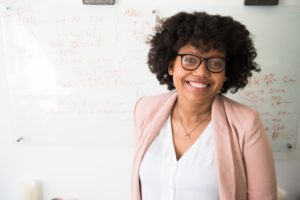Subject, curriculum changes planned for the future

The Department of Basic Education (DBE) is focusing on implementing ways to bring the national education curriculum more in line with the needs of the fourth industrial revolution.
This comes after a parliamentary Q&A with Basic Education Minister Angie Motshekga.
She said, included among others will be robotics and coding, and schools in which these subjects have been introduced are pleased with the department’s move to improve skills.
In a meeting with SADTU last year, Motshekga had already anticipated the need for new subjects and specialised schools. She said the curriculum needs to address skills and competencies for a rapidly changing world.
Changes will be made to marine sciences, occupational streams for schools of skill, special schools and mainstream education.
The DBE announced in March that entrepreneurship and employability education will be included in the revised curriculum.
There will be more of a drive towards specialisation and more focus on the changes required by 4IR.
The department wants to incorporate real-life projects that offer chances of entrepreneurship. This will apply to all grade levels.
“I have long said that entrepreneurial skills should be included in the basic education curriculum,” President Ramaphosa said.
The end goal is to have 10 focus schools:
- Hi-tech (robotics and coding)
- Arts
- Business commerce and management
- Aviation
- Maritime
- Engineering
- Skills schools
- Commercial schools
- Maths and science
- Hospitality and Tourism
The department will conduct trial runs on the new curriculum between 2020 and 2024.
These will initially take place in 600 schools and the department anticipates implementing changes to the whole curriculum by 2024.
Motshekga said research is being done by scholars countrywide and suggestions are incorporated into curriculum revisions.
It’s not only improvements on delivery that is being investigated. Research is also focused on a different approach to the curriculum as it stands.
The department is keen on offering mother-tongue teaching beyond foundation phases and is looking at gradually introducing the African languages policy.
These are all long-term changes.



